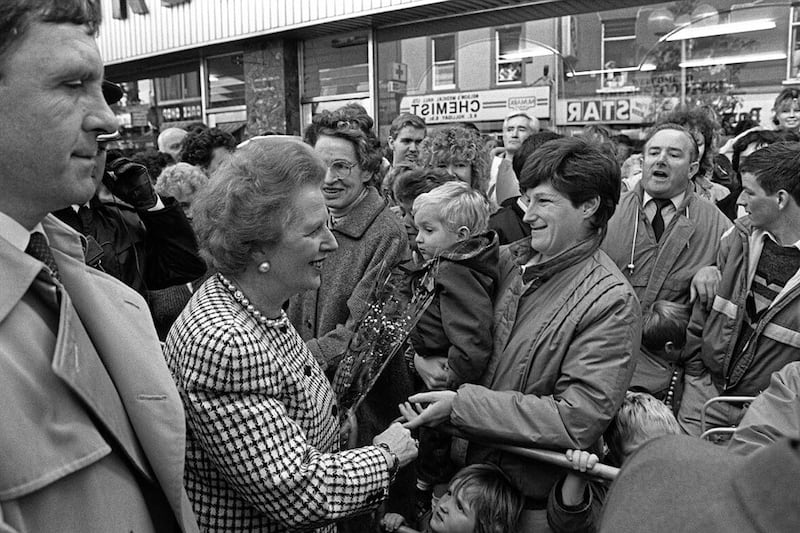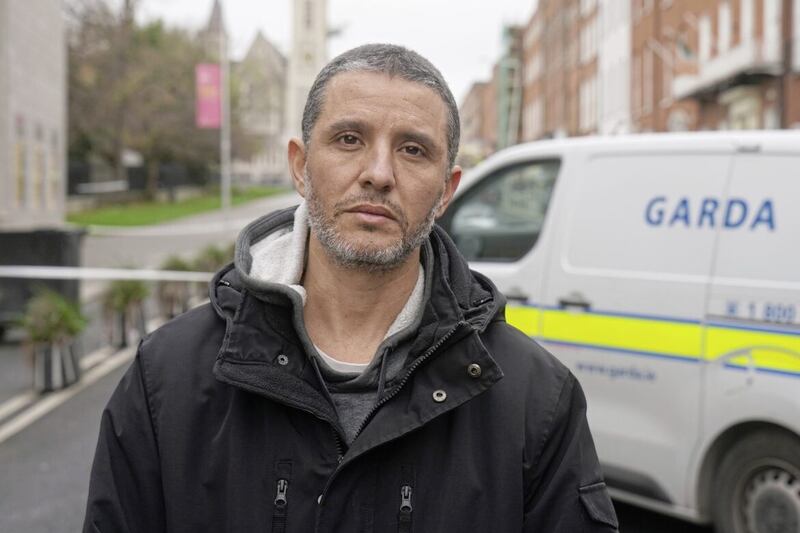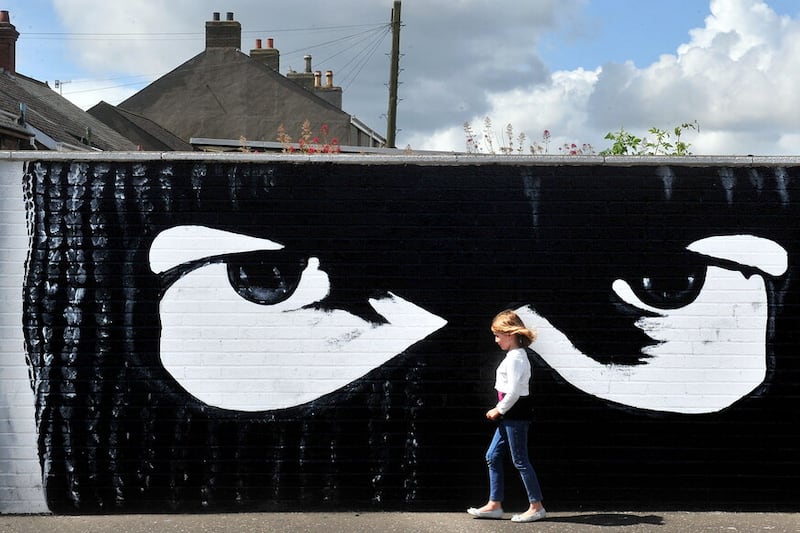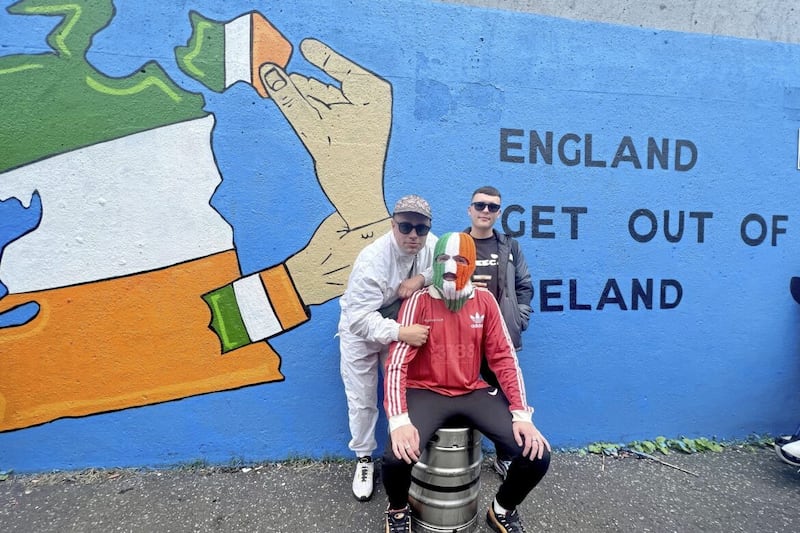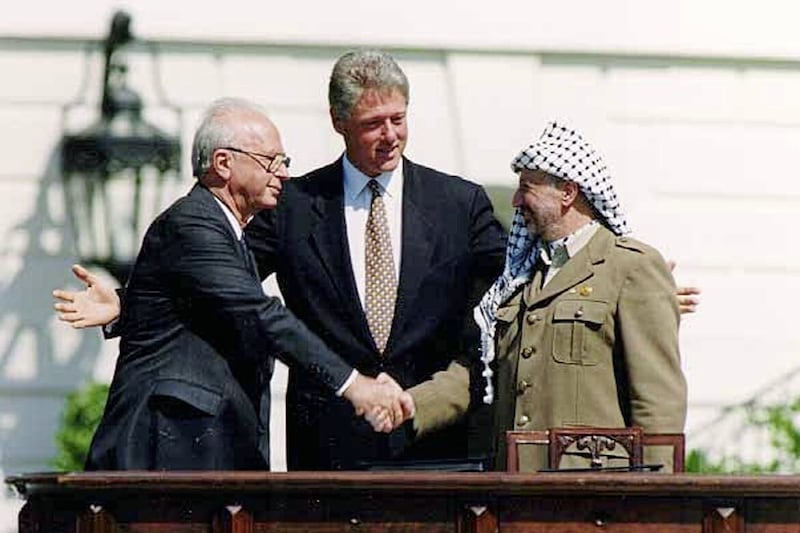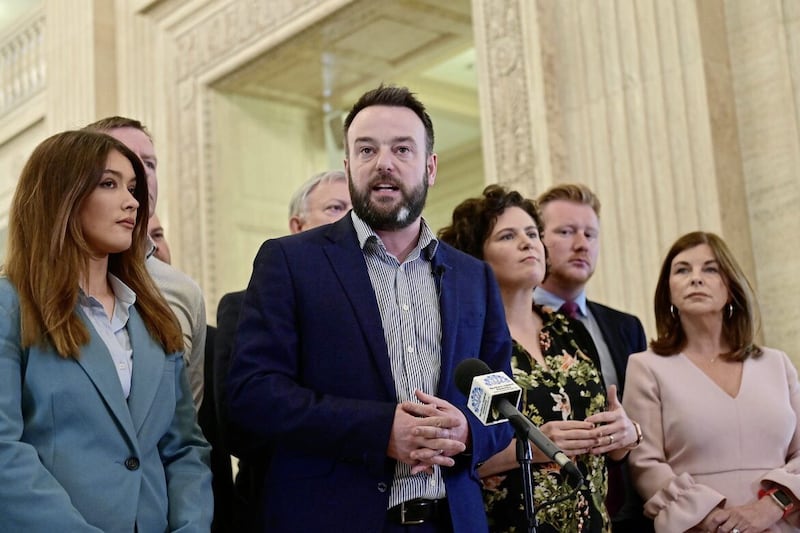As I sit on the Enterprise with my earphones plugged into RTÉ's Claire Byrne show, my mind is bombarded with an apocalyptic and dystopian Dublin smouldering in smoke and ash; the Liffey flowing with tears as Parnell, perched over the devastation, calls halt on the march of the rabble below.
At the other the end of what once was Dublin's Champs-Élysées, Larkin throws up his arms in despair; whilst The Liberator looks the other way as his beloved city smoulders. This isn't the Ireland of 100,000 welcomes.
Read more:
Just as I start to pen this column, the Angelus bell sounds. A single minute to reflect on 1,440 minutes of noise.
There are no words to describe the horror and tragedy which occurred in Dublin. To paraphrase another era, it was grotesque, unbelievable, barbaric and unpredictable.
The savage knife attack on young children was beyond comprehension. The alleged perpetrator deserves no mercy. Migrant or not makes little difference – laws have been broken. A man of murderous intent, he should face the full consequences of his actions.
Individuals like him are thankfully rare but they come from all ethnicities and backgrounds.
Amid so much hatred, there also came forward a hero in the form of another migrant, Caio Benicio from Brazil. At much risk to himself he tackled the alleged perpetrator and no doubt saved lives.
Read more:
Tom Kelly: Time for UVF and UDA to leave the stage – and without a single cent
Tom Kelly: It's clear that 'whataboutery' is all too alive
Tom Kelly: As war rages in Gaza, it's time for politicians to take risks for peace
What happened thereafter was orchestrated and fuelled by manipulative right-wing extremists who radicalise the marginalised, the knuckleheads and naive by feeding them a vile trail of online untruths, lies, propaganda and bigotry.
They found a ready made mob in an army of feral Dublin youths only too willing to engage in recreational violence.
Some like-minded English fascist supporters called these hooligans 'Irish patriots'.
Since when did patriotism include reckless violence, attacking police, paramedics, fire fighters, bus drivers and the general public? When did national fealty include robbing, looting, arson and wanton destruction of property?
It doesn't. In fact, these are acts of treason – treasonable acts carried out by twisted individuals motivated by hated of anyone not perceived to be of their own; who have a visceral and irrational fear of migrants and who export their prejudices and racist ideology to empty-headed yobs, half-wit cretins and know-nothing keyboard bigots.
The rise of Irish neo-fascism needs clipped. It's organised, paid for and manipulated on an international scale.
Ireland can't be allowed to sink into the sewer-swimming world of ultra-nationalist xenophobes and alt-right supremacists. Whether they stomp around the streets of Dublin in hoodies and bovver boots or masquerade as political slick willies on TV, they are still two sides of the same coin; purveyors of bile and hate.
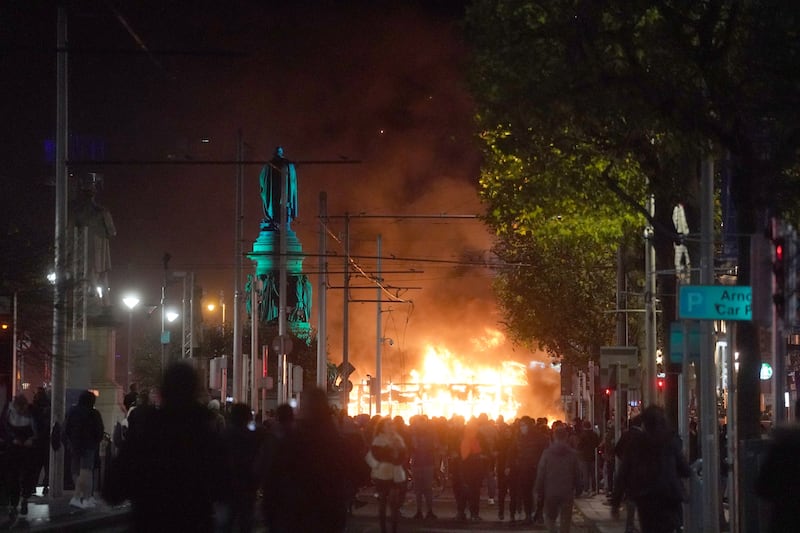
The poet Peter Makem, in his excellent piece of recent work, The Tribe of Earth, may have a few answers for the current malaise in Irish society. His poetry is quite prophetic.
In earlier writings he foresaw at the height of the Celtic Tiger that the "point of ripeness" was also the "point of rot".
In this new collection of poetry, Makem writes about "our possession of being" which drives our hopes, loves, fears and tensions. His notion about "mystical wrath" periodically surfacing in Irish society, despite the richness of our cultural and literal heritage, resonates.
He points out its brutal savagery as manifested during the Irish civil war and the Troubles. Brother killing brother, neighbour murdering neighbour.
Maybe there's a similar type of brutality in the lawlessness and violence as manifested in Dublin last week by the far-right.
Some Irish tend to view the country as monocultural and therefore are slow adjusting to a multicultural Ireland.
Long forgotten is the mixed bloodlines of Gael, Vikings, Anglo-Normans, Scots and the English, and never mind the Americanisation of our culture.
Perhaps by embracing a new, diverse Ireland, we can, as Makem predicts, "all meet on the blossom of hope".



